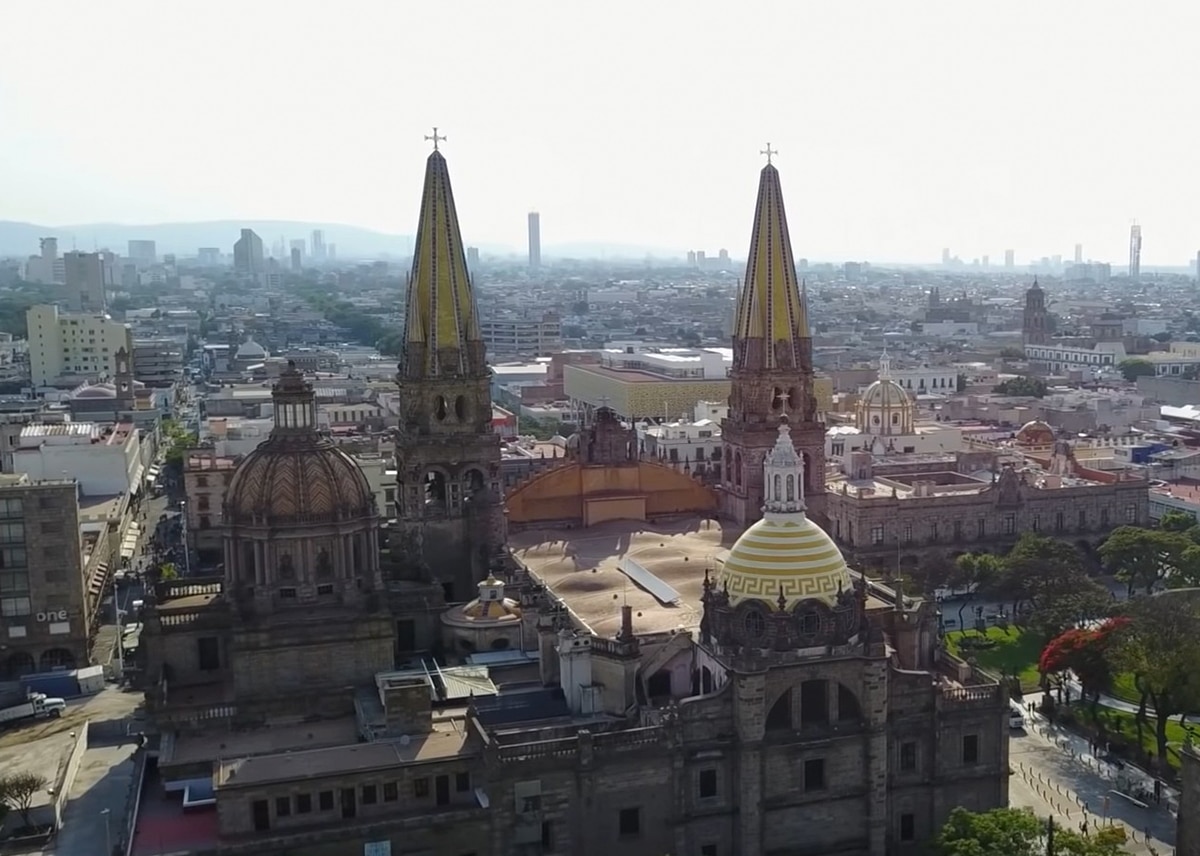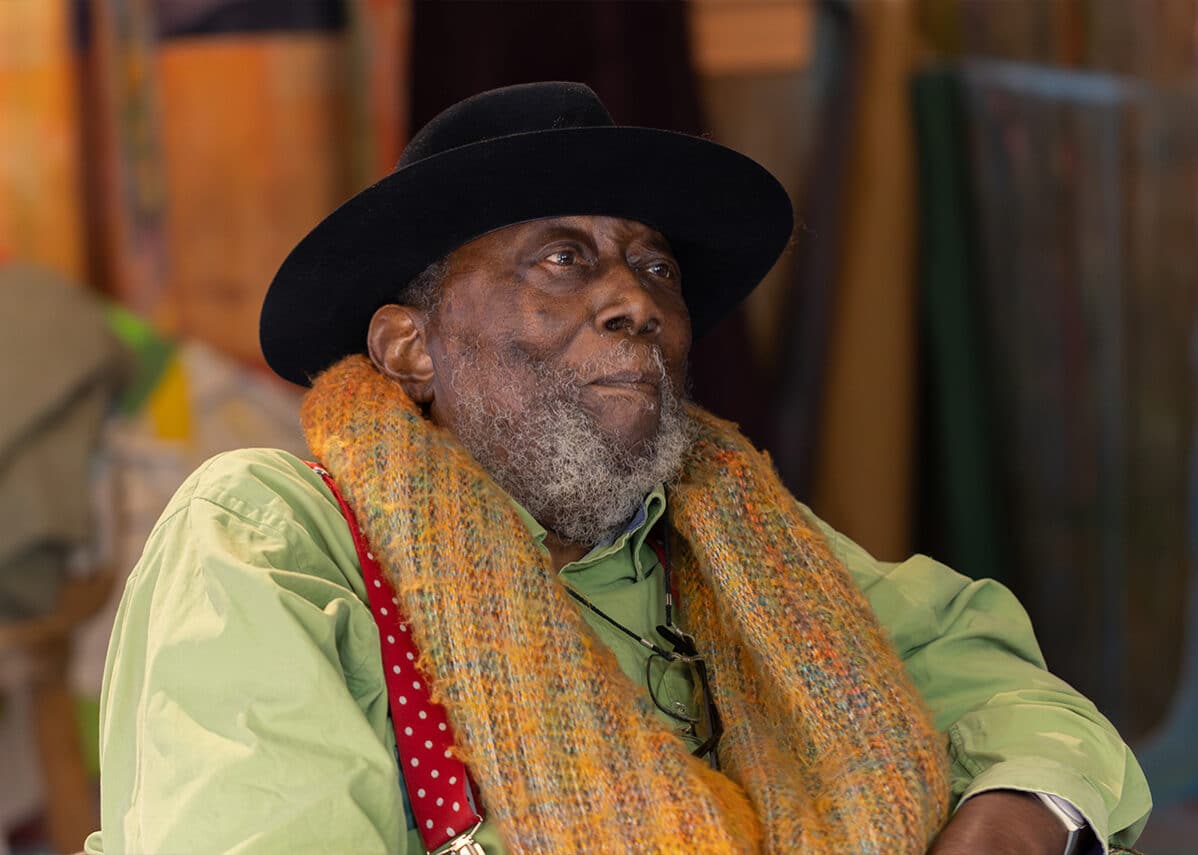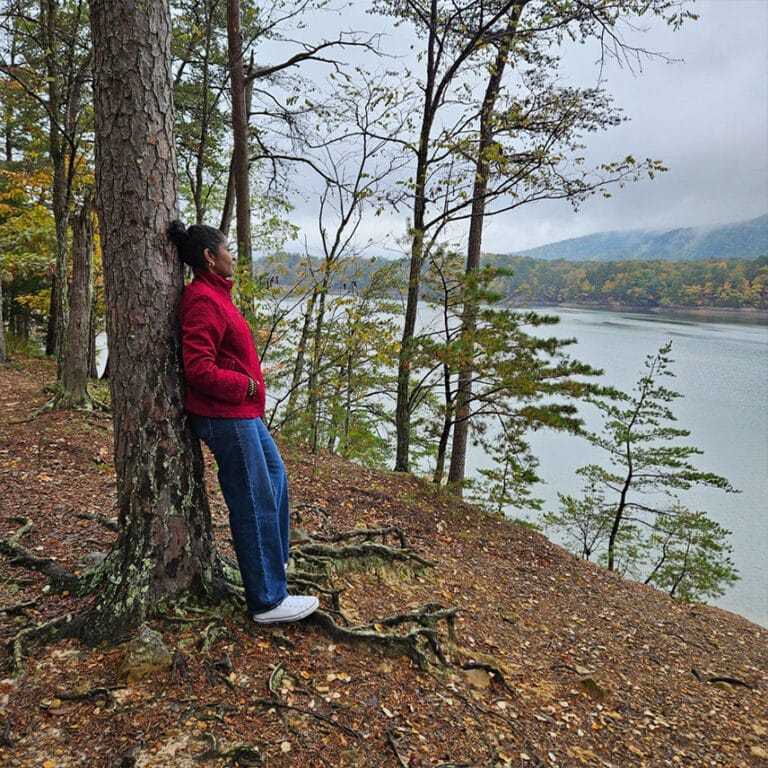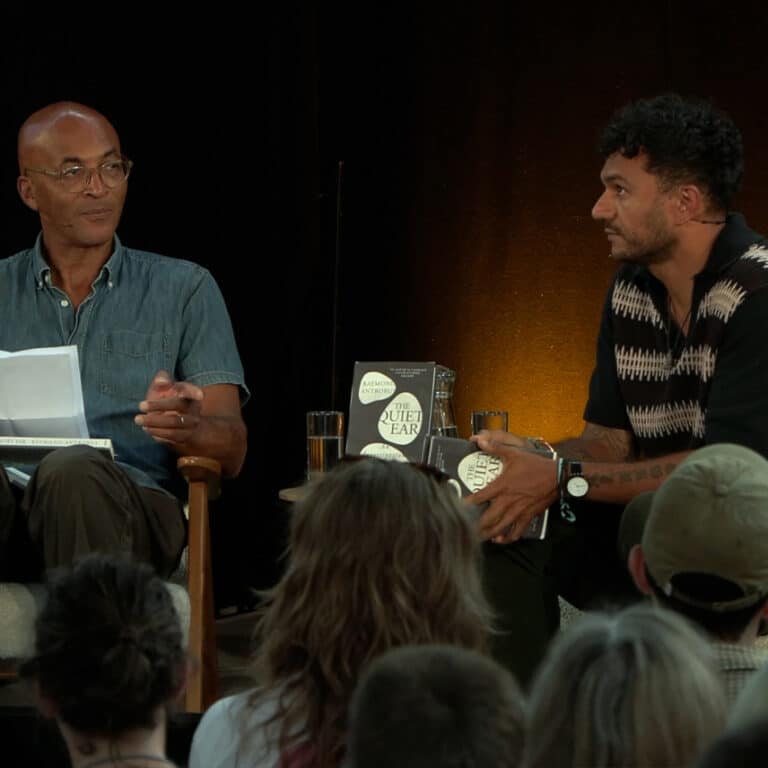Grenfell

Gillian Slovo
Dorfman Theatre, National Theatre, London (2023)
Review by Naomi Foyle
Gillian Slovo’s Grenfell: in the Words of Survivors is a tremendous work of remembrance and protest, an outstanding piece of verbatim theatre that skilfully interweaves the stories of former residents of Grenfell Tower, London, bereaved and traumatised by the fire that engulfed the building on 14 June, 2017. Six years later, the official inquiry into the blaze has concluded but has yet to release its final report on the causes of the fire, in which 72 people, mainly from poor and global majority communities, lost their lives. As the survivors wait for justice, this powerful play helps provide a vital public forum for awareness and community building, and, hopefully, the slow work of healing.
Slovo’s script, based on interviews with people affected by the Grenfell tragedy, and incorporating key points of the Inquiry, moves fluidly between accounts of life in the Tower; the refurbishment process; the day and night of the fire; and its aftermath. Survivors’ accounts of being dismissed by the Kensington and Chelsea Tenant Management Organisation, or hearing a late relative who ‘had an accent’ being patronised on the phone by a fire officer who helped save the man’s neighbours, expose the systemic inequality and discrimination at the heart of the disaster. While Slovo invites compassion for individual fire fighters, struggling to comprehend a blaze of unprecedented ferocity, she forensically confronts the already discredited ‘Stay Put’ policy (which instructed residents to remain in their flats until rescued) and the staggering disregard for human life displayed by the local government authority, and professionals in the construction industry. As a materials engineer involved in approving patently flammable cladding passes the buck to his sales teams, a toxic irony becomes clear: corporate insistence on compartmentalising responsibility created an inferno that refused to be contained.
Adroitly riding the play’s tide of anger, co-directors Phyllida Lloyd and Anthony Simpson-Pike’s staging is pacy, minimalist and inventive. Cardboard filing crates, suggesting boxed possessions and reductionist bureaucracy, swiftly become domestic furniture, an inquiry podium, the Tower itself. Screens convey technical and historical information, a timeline, and close-ups of telling faces. Stark white lighting on the black stage evokes isolation, social division, death-trap windows, a fatal game of snakes and ladders as residents, confronted with smoke-filled stairwells, agonisingly wait to dampen mouth-cloths as the building’s pipes drip dry. A sombre score adds to the elegiac mood. Yet the riveting clarity of the spot-lit actors insists we bear witness not just to trauma and loss, but also to the dignity, courage and intelligence of so-called ordinary people. Love, wonder, humour and gratitude – humanity’s saving graces – are illuminated in family phone calls, moving encounters with fire fighters, heart-aching tributes to the dead.
Above all, the show is an exemplary collaboration. From the start, the diverse, ensemble cast demonstrates a palpable sense of respect for the survivors’ distinct identities. As the actors introduce themselves, Gaz Choudhry explains he is an amputee, but Maher Khoudair, whom he plays – who escaped from the ninth floor alone, on crutches – has ‘a different disability’. This care and sensitivity extends to the audience. No flames are shown, we are asked to meet our ‘neighbours’, and offered support in the foyer if we need it. At the play’s conclusion, the survivors themselves address the audience directly in a film – and as we rise to leave, we all join the march for Justice for Grenfell.
Naomi Foyle is the writer of the video poem ‘Going on Crutches to Grenfell Tower’ directed by Steve Bloom.
RENDANG
A magical reclamation of individuality from the mass of some of the world’s largest cities
Granta 173: India
A look at four short pieces of fiction from Granta's latest edition showcasing Indian writing
The Thing with Feathers
Dylan Southern’s film adaptation puts masculinity front and centre
Watching a theatre go dark
What we lost with the Blue Elephant Theatre
Waste not, want not
The cultural politics of waste
Frank Bowling
An interview with one of the foremost artists of his generation, Sir Frank Bowling
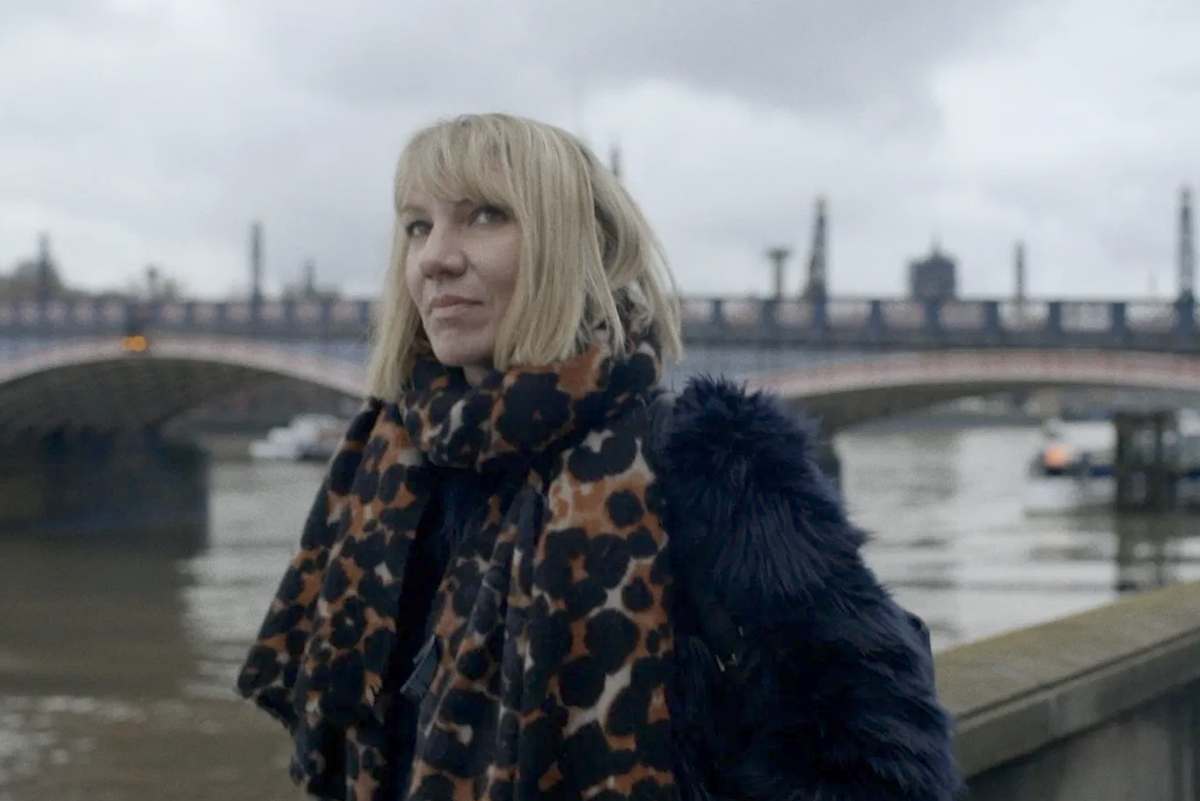
Reggae Story
Hannah Lowe reads her poem, 'Reggae Story' inspired by her Jamaican father, Chick. Directed by Matthew Thompson and commissioned by the Adrian Brinkerhoff Poetry Foundation.
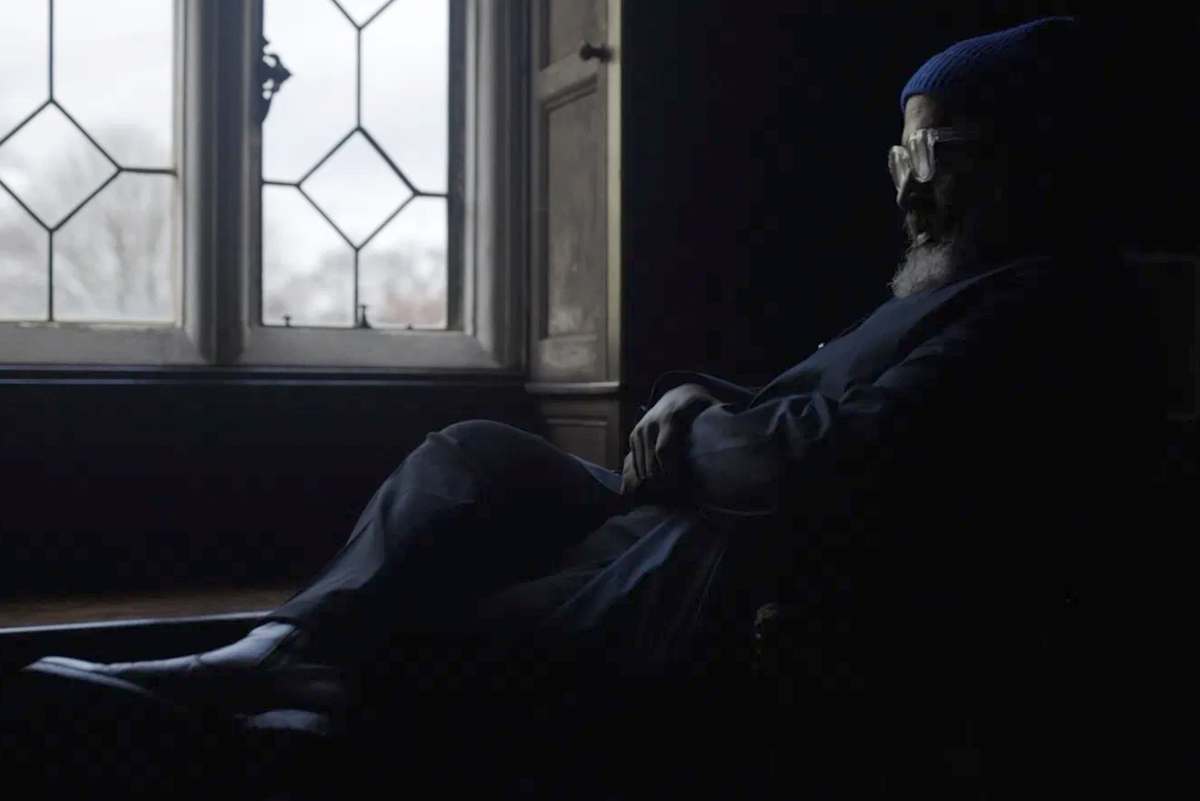
The City Kids See the Sea
Roger Robinson reads his poem, 'The City Kids See the Sea'. Directed by Matthew Thompson and commissioned by the Adrian Brinkerhoff Poetry Foundation.
Illuminating, in-depth conversations between writers.
Listen to all episodes
SpotifyApple Podcasts
Amazon Music
YouTube
Other apps
The series that tells the true-life stories of migration to the UK.
Listen to all episodes
SpotifyApple Podcasts
Amazon Music
YouTube
Other apps
Afro-Caribbean writer Frantz Fanon, his work as a psychiatrist and commitment to independence movements.
Listen to all episodes
SpotifyApple Podcasts
YouTube









